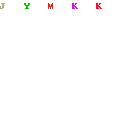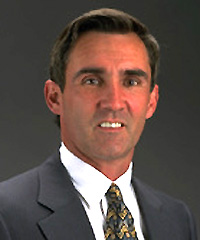Rally [people] of Notre Dame | by Jay
Much more to come on the Insight.com bowl, the BCS, Charlie Weis's assistant coaching staff, plus a BGS year-in-review. In the meantime, here's a fun feature from the New York Times on college fight songs. (If we ever were to revise the Victory March, I think we should take a cue from New Mexico State).
Sometimes, Sis-Boom-Bah Doesn't Seem Like Enough
By Warren St. John
The outcome of the Bowl Championship Series is up in the air until Tuesday, but going into the final week of college football this year, a few things are certain: seasons will be made and lost, touchdowns scored, marching bands will play in celebration and lots of people will sing songs that make next to no sense to the modern ear.
Consider the "Aggie War Hymn" of Texas A&M:
Hullabaloo, Caneck! Caneck!
Hullabaloo, Caneck! Caneck!
Consider also the Oklahoma fight song, "Boomer Sooner."
Boomer Sooner, Boomer Sooner.
Boomer Sooner, Boomer Sooner!
Fight songs, perhaps always self-consciously anachronistic, have never sounded more out of date than they do today. With their bloodthirsty lyrics - "You will hit 'em, you will wreck 'em; Hit 'em, wreck 'em Texas Tech!" - and their unabashed chauvinism, not to mention the fusillade of nonsense phrases, the sentiments they express couldn't clash more with the tolerant and inclusive atmosphere emphasized on most college campuses.
And to the typical college athlete, who likely spends as many hours a day blasting Nelly on headphones as listening to the sounds of the natural world, nothing sounds as utterly square as "Rah! Rah! Rah!"
"The culture that these songs came from goes back to the early 1900's songs for white athletes," said Glenn Richter, a former director of the University of Texas marching band. "They picked musical styles that were popular at the time, but that has changed radically. There's very little out there now that reflects the current student-athlete."
All this weighed heavily earlier this fall on Aaron Alcala-Mosley, a 22-year-old bass drummer in the University of California marching band. The university was accepting submissions for lyrics to a new fight song, and Alcala-Mosley wanted to enter. He said he sat down to compose the night before the deadline.
"I wasn't into the call to violence," he said. "Instead of annihilating Stanford, I thought I'd focus on the idea of Cal winning."
Alcala-Mosley studied fight song lyrics of other universities and noted they shared two characteristics: "A timelessness, and a cheesiness."
His entry, "California Triumph," won hands down, and doesn't lack for either:
Boldly, sons and daughters,
From our hearts our song we sing!
For all the glory we shall bring her,
Alma Mater's name shall ring.
"It's kind of generic, but also what we felt we wanted," said Robert Calonico, the director of bands at Cal. "The stuff our world has been through makes you stop and think, 'Is this really what we want in our song?' And Berkeley students are very sensitive."
Sensitivity has not traditionally been the aim of the fight song. Most are martial versions of war cries, meant to intimidate the competition into a quivering mess. Thomas C. Duffy, the music director of the Yale band, said the common theme of most fight songs was "who's going to do what to whom, and how bad."
Duffy said also that given the modern prevalence of female athletes - unthinkable in the day many fight songs were composed - there's often a notable disconnect between fight song lyrics and who is being urged to fight.
"We sing 'the sons of Eli' when the sons of Eli aren't even on the field," he said, referring to a line from Yale's fight song.
A few universities have tried to subtly nudge their fight songs into the modern era.
Drake University in Des Moines changed the opening line of its fight song from "Here's to the man who wears the 'D' " to "Here's to the one who wears the 'D.' "
Brigham Young University changed the line "Stalwart men, and true" to "Loyal, strong and true." But for the most part, changes to fight songs do not go over well with alumni or fans, so most remain the same as they ever were.
"It would be a major upheaval to turn over tradition," Duffy said. "You'd alienate more people than you'd win over."
Some of the anachronisms in fight songs are too subtle to bother any but the most obsessive sports historians. The University of Alabama fight song, "Yea! Alabama," invokes a Rose Bowl victory and threatens drowning to the Georgia Tech Yellow Jackets, even though Alabama hasn't been to the Rose Bowl since 1946 and no longer counts Georgia Tech as a regular rival.
So why not tweak a line or two to make the song more current?
Mitchell Shaw, 38, a hard-core Alabama fan known to many sports talk radio listeners in the state as "Mitchell from Montgomery," said no way.
"If it ain't broke, don't fix it," he said. "That's like changing the uniforms - you're not going to do that."
Summing up the view of many fans, Shaw added: "I know we live in the past. But at least we have a past."
Some fight songs invoke the past more deliberately than others. L.S.U. looks to medieval times:
Like knights of old we fight to hold
The glory of the Purple and Gold
San Diego State looks to ancient Mexico:
Fight on and on ye Aztec men
Sons of Montezuma, we will win again.
For sheer anachronism, though, perhaps nothing can approach the fight song of the Albion College Britons, in Albion, Mich., some of which is written in Middle English.
Fyte Onne, for Albion,
Her destiny is in your hands!
Fyte Onne, and don't give in,
No fighting Briton ever has!
As for violence, some fight songs cite specific methods, while others generalize. Fans of St. Olaf College in Minnesota issue a broad warning to rivals: "We fight fast and furious, our team is injurious."
Perhaps fittingly, the Air Force Academy fight song - "Off We Go (Into the Wild Blue Yonder)" - goes into more detail, promising to give the opposition a good strafing:
Here they come, zooming to meet our thunder,
At 'em boys, give 'er the gun!
Down we dive, spouting our flame from under
Off with one helluva roar!
But as the name suggests, most fight songs are about fighting. And fighting some more. University of Massachusetts fans sing:
Fight, fight, Massachusetts!
Fight, fight every play!
Fight, fight for a touchdown!
Fight all your might today!
Southern California fans strike a similar chord:
Fight on for ol' S.C.,
Our men fight on to victory.
Our alma mater dear
Looks up to you,
Fight on and win
For ol' S.C.
Fight on to victory
Fight on!
Some old fight songs are pacifist in nature, but they dispense with promises of violence in favor of getting drunk. The New Mexico State fight song declares:
Aggies, oh Aggies
We'll win this game or know the reason why
And when we win this game
We'll buy a keg of booze
And we'll drink to the Aggies
'Til we wobble in our shoes
As for Cal's new song, Calonico said it was too early to know how well it would be integrated into the actual games.
"A lot of old blues said they love it," he said, using the term for Cal alumni.
At games, he said: "It still hasn't really caught on. We've plastered the words up on the Jumbotron so that people will sing along."
Asked if he would recommend that other universities amend their fight songs, Calonico said, "It's what worked for us."
Nifty multimedia postscript: to listen to any of these songs, mosey on over here.

 Even then, Weis had a swagger. Giants coaches would needle him, asking why he was spending so much time at their offices and not working at the high school. Weis would say he needed to install only half the offense, because he did not want to beat teams, 100-0. "Sure enough, I'd pick up the paper and Franklin would win, 50-0," Rooney recalled last week with a laugh.
Even then, Weis had a swagger. Giants coaches would needle him, asking why he was spending so much time at their offices and not working at the high school. Weis would say he needed to install only half the offense, because he did not want to beat teams, 100-0. "Sure enough, I'd pick up the paper and Franklin would win, 50-0," Rooney recalled last week with a laugh.


 john goodman
john goodman
 donald sutherland
donald sutherland
 gary burghoff
gary burghoff
 samuel l. jackson
samuel l. jackson
 frankie muniz
frankie muniz
 dave thomas
dave thomas
 curly neal
curly neal
 reginald veljohnson
reginald veljohnson
 don johnson
don johnson
 chuck e. cheese
chuck e. cheese
 gary busey
gary busey
 john ratzenberger
john ratzenberger
 smoove B
smoove B
 kent baer
kent baer
 sam kinison
sam kinison
 gary cole
gary cole
 max wright
max wright
 leslie nielsen
leslie nielsen
 james cagney
james cagney
 francis
francis From this morning's
From this morning's  However, it’s almost nine months until the first game of the Weis era – so the wins and losses will have to wait. Until then, Notre Dame fans will enjoy having a coach that shares their passion for Notre Dame.
However, it’s almost nine months until the first game of the Weis era – so the wins and losses will have to wait. Until then, Notre Dame fans will enjoy having a coach that shares their passion for Notre Dame.  With the
With the 